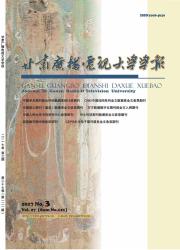看电视是否会“越看越饿”?答案是…… Appeti
【作者】:网站采编
【关键词】:
【摘要】为什么看电视时总想吃东西?尤其是看美食节目时,总是感觉“越看越饿”。难道看电视真的会刺激食欲吗? ? [Photo/Pexels] ? Sitting down in front of the television with a meal or snack after a long da
为什么看电视时总想吃东西?尤其是看美食节目时,总是感觉“越看越饿”。难道看电视真的会刺激食欲吗?
?
 [Photo/Pexels]
[Photo/Pexels] ?
Sitting down in front of the television with a meal or snack after a long day is a very popular recreational pastime. And thanks to streaming services that play every episode of a television series automatically, some viewers aren't even burning the few calories it might take to reach for the remote.
在漫长的一天结束时坐在电视机前吃东西是很受欢迎的休闲方式。现如今流媒体平台可以自动播放下一集电视剧,观众甚至连起身去拿遥控器的那点运动量都省了。
?
But is it sloth that keeps us chewing, or something else? Is it possible the experience of watching TV can stimulate our appetite?
但是为什么我们看电视时会不停嘴地吃?是因为懒惰,还是别的什么原因?看电视是否会刺激食欲呢?
?
According to the Cleveland Clinic, television isn't so much an appetite stimulant as it is an appetite distraction. When we watch TV, we're engaged in the program, which means we're paying less attention to the neurological and gastronomical cues that tell us we're getting full. Instead of taking note of how we"re eating, we're engaged in somewhat passive consumption.
克利夫兰诊所指出,与其说看电视增进食欲,不如说它分散了对食欲的注意力。当我们看电视时,我们的注意力被节目吸引,这意味着我们会忽视神经系统和胃部发出的提示饱腹的信号。我们只是被动进食,却没注意到吃了什么,好不好吃。
?
In 2015, a study published in The International Journal of Communication and Health surveyed 591 undergraduates at the University of Houston. It showed that the more students watched, the more they snacked. The study also found evidence that increased television viewing was associated with a “fatalistic” view of healthy food intake and poor nutritional knowledge.
2015年,一项发表在《国际传播与健康杂志》上的研究调查了591名休斯顿大学的本科生。调查显示,学生看电视看得越多,吃的零食就越多。研究还发现有证据表明,看电视过多与对健康饮食的“宿命论”观点和营养知识欠缺有关。
?
One reason could be that excessive television viewing of news, entertainment, and advertising sends conflicting messages about food. A news program might tell you to eat more fruit. A commercial might tell you to eat more cold cereal.
一个原因可能是新闻、娱乐和广告传达的食物信息是相互矛盾的。新闻节目可能让你多吃水果。而广告可能让你多吃冷麦片。
?
Combining television and snacking also creates a cognitive association in your brain that may prompt you to consider the two activities intertwined. In other words, you might reach for some pizza or chips not because you're all that hungry, but because you"ve come to identify television with eating. You might even eat more depending on the length of a program. If you're watching Friends, a half-hour sitcom, you might eat less than if you were watching a super-sized episode of a drama like Mad Men.
一边看电视一边吃零食可能会在你的大脑中形成认知关联,导致你认为这两种活动就应该一起进行。换言之,你去拿披萨或薯条薯片来吃,不是因为你饿了,而是因为你认为看电视时就应该吃东西。你吃多少甚至可能取决于节目的长短。如果你看的是一集半小时的情景喜剧《老友记》,你吃的零食可能比你看一集超长电视剧(比如《广告狂人》)吃进去的少。
?
That's not to say the content of a program isn't influential. In 2013, a study in the journal Appetite looked at a group of 80 subjects, half of whom were told to watch a cooking program and half who were told to watch a nature show. Both groups were presented with equal amounts of chocolate-covered candies, cheese curls, and carrots. Researchers found that viewers of the cooking show tended to eat more chocolate-covered candies than the nature show viewers.
这并不是说,节目的内容对你的进食没有影响。2013年,一项发表在《食欲》期刊上的研究开展了一个涵盖80人的实验,让其中一半人看烹饪节目,另外一半人看自然节目。研究人员为两个小组提供了同样多的巧克力糖、芝士条和胡萝卜。结果发现,看烹饪节目的人比看自然节目的人吃的巧克力糖更多。
?
So is snacking while watching television that bad? Like most things, it's OK in moderation. Eating meals away from the TV can encourage mindful eating, which directs your attention to the food in front of you. You'll be able to pick up on satiety cues when you"re not fully focused on your screen. Better yet, you won't have to struggle to hear your favorite show over all that chewing.
文章来源:《甘肃广播电视大学学报》 网址: http://www.gsgbdsdxxb.cn/zonghexinwen/2021/1019/980.html
甘肃广播电视大学学报投稿 | 甘肃广播电视大学学报编辑部| 甘肃广播电视大学学报版面费 | 甘肃广播电视大学学报论文发表 | 甘肃广播电视大学学报最新目录
Copyright © 2018 《甘肃广播电视大学学报》杂志社 版权所有
投稿电话: 投稿邮箱:

